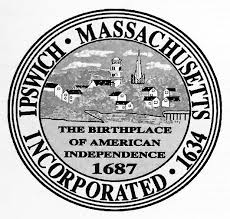
The increase in the size of ships and the consequent decline of the fishing industry in Ipswich during the latter half of the 18th Century deprived many families of their means of support and compelled an increasing number of the inhabitants to ask for relief from the Town. The town responded by ordering the Sheriff to serve a summons on anyone who arrived in the town without the Town’s consent, giving them fifteen days to depart. The Legislature repealed the law which made this possible.
*Information, text, and dates in this article come from Ipswich in the Massachusetts Bay Colony by Thomas Franklin Waters.
The Town of Ipswich appeals to the General Court, May 1794
“This place has for many years past been on the decline, arising partly from other Towns in the Vicinity being more Commodious for Trade since the County has become settled and partly from the great Increase of paupers, which has become a Heavy burden to your Petitioner, as the Town of Ipswich is an ancient corporation. The present Inhabitants are obliged to support many Poor persons who have passed many of their Useful Days and expended all their Property in other Towns, but having gained no legal settlement elsewhere, return to us for Maintenance & support which has thrown on us an additional burthen.”
The town’s petition for relief was denied by the General Court.
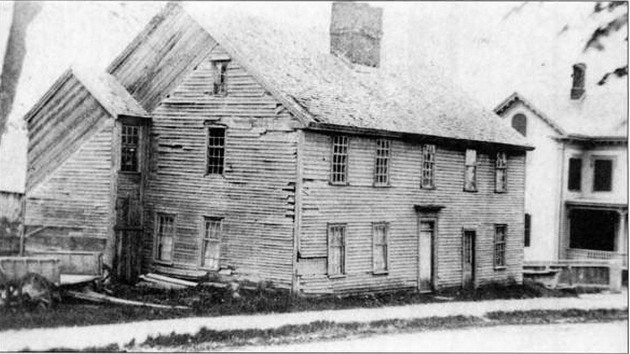
The Hamlet breaks away and becomes Hamilton, June 21, 1793
The part of Ipswich known as the Hamlet (now Hamilton) was “set off” as a separate parish (church) in 1714-15 after several appeals to the Town and to the General Court. A long-held desire for complete separation from the town of Ipswich gathered strength in 1792 when the town voted $500.00 for support of the poor. The great bulk of the needy and helpless families were found in the old Town of Ipswich and at Chebacco. As the people of the Hamlet were primarily farmers and financially stable, the burden of taxation for the support of the poor was considered to be an unjust imposition. The leaders of the parish petitioned the leaders of Ipswich to be allowed to incorporate as a separate town, and the petition was granted by the inhabitants at a legal meeting held on May 22, 1792.
The Hamlet was incorporated by the name of Hamilton on June 21, 1793, with the condition that the new town pay the town of Ipswich $908.00 for support of its paupers. Rev. Cutler of the Congregational Church in the Hamlet had served in Congress before becoming one of the town’s longest-serving pastors, was a strong advocate of Federalism, and urged that the new town be named after Alexander Hamilton. The similarity of the names Hamlet and Hamilton was merely coincidental. Read: History of the Hamlet, 1638-1793.
Chebacco breaks away and becomes Essex, February 5, 1819
The inhabitants of the part of Ipswich known as Chebacco (now Essex) built a meetinghouse in 1674 and established their own parish in 1679, after encountering considerable resistance from the mother church in Ipswich. Chebacco residents were still residents of the town of Ipswich. The movement for complete separation gained strength on New Year’s Day, 1818 when $10,500.00 was appropriated by the town of Ipswich to build a Town Farm for the Poor.
On April 6, 1818, two hundred and six men of Chebacco petitioned the Legislature for incorporation as a separate town, and to not be held for any part of the new and expensive establishment for the relief of the poor. The Town of Ipswich protested against the separation, “unless an indemnity or equivalent is given by them for the large sums of money expended for the support of the large number of paupers.” Although Chebacco had its share of poor people, it also had a thriving shipyard in which to employ them. The word “Chebacco” was a Native American name for the lake that lies between Essex and Wenham.
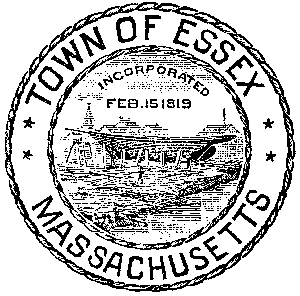
The legislature approved incorporation on the condition that the citizens of Ipswich & Chebacco “support and maintain all such as now are, or hereafter may be, inhabitants of the said towns respectively, or who were born in or have a derivative settlement through any person born in or deriving settlement from any ancestor, and are or may become chargeable as paupers according to the laws of this Commonwealth, and who have not gained settlement elsewhere.”
The citizens of Chebacco chose to name their town Essex, and it was incorporated on Feb. 5, 1819, with a $3000.00 payment to the mother town Ipswich to settle accounts, including the poor, and an additional $2270.00 for their share of public property remaining in the new town’s hands.


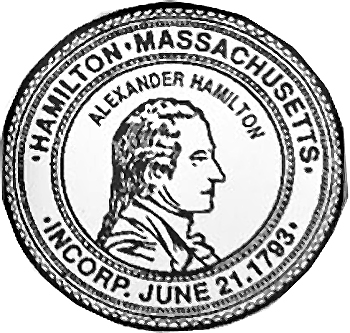
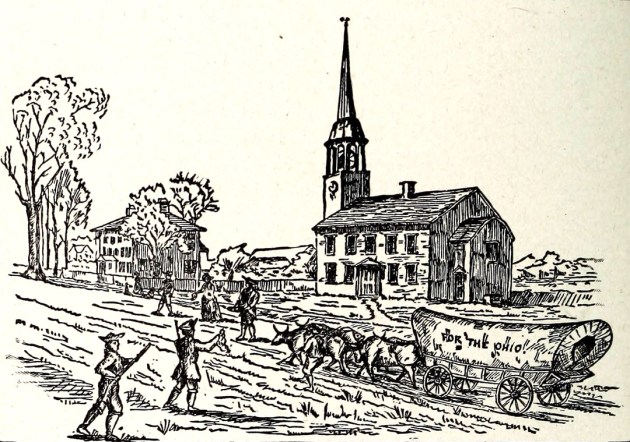
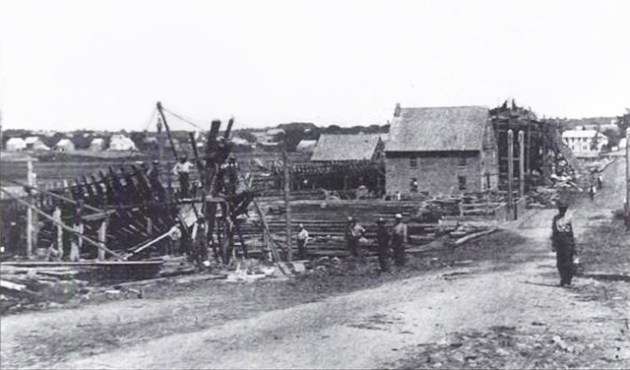
Many thanks. This may answer a question I’ve had for a while. I am a descendent of John Parish who lived in both Ipswich and later Chebacco in the 1600s. I always wondered why he moved and it is perhaps that he didn’t move but the borders did. Now all I have to do is find some sort of record telling me who his parents were. His life seemingly starts when he turns 21 and gets married. Someday I hope you will read a story on orphans and those who get adopted. We regularly adopted lots of children in my family but there’s no written record of who those children were. But that’s a different story and I appreciate having this one to help me figure out where we were living and why we seemingly moved
Actually Manasseh Cutler of Hamlet was long time pastor of Hamlet well before becoming a congressman. He was second minister, starting in 1771, and served for 52 years. He did not.become congressman until well into his pastorate.
I am a descendant of Thomas Burnham who arrived in Ipswich, aboard the ship Angel Gabriel, which ship wrecked off the coast of Maine, in 1630. He was accompanied by his older brothers John and Robert, and their uncle who was Captain of the Angel Gabriel.
My maternal grandfather was David Randall Burnham who was born in Essex, on November 11, 1894. He married my grandmother, Elizabeth Louise Haskell, in Manchester-by-the-Sea, on his 20th birthday, November 11, 1914. Bessie Burnham was born in Manchester, on January 9, 1897.
I still have relatives in the area. Although I live in the Gold Country of the Sierra Nevada in Northern California; still love and embrace the North Shore of Massachusetts.
I just corrected the spelling of my surname, the result of fat fingers and small keys.
Several of my ancestors, great-grandfather Frank M. Burnham, and previous Burnhams worked in the shipyards, in Essex.
Thank you for such an interesting article. My first American ancestor was Edward Allen (Allyn), b. 1633 in England. There are various theories where. He arrived in Ipswich in 1636, at the age of three. He was not accompanied by his parents, which seems to imply that he was a “poor apprentice.” Two men with whom he had a relationship with were Rev. John Norton, upon whose land he lived in his youth, and Richard Kimball (Kemball) whose daughter Sarah he married in Ipswich in 1658. It would be wonderful if you could write something about the early indenture and “poor apprentices.”